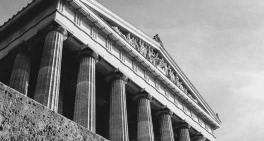Supreme Court blocks Louisiana abortion clinic law
Featured Legal News
A divided Supreme Court stopped Louisiana from enforcing new regulations on abortion clinics in a test of the conservative court's views on abortion rights.
The justices said by a 5-4 vote late Thursday that they will not allow the state to put into effect a law that requires abortion providers to have admitting privileges at nearby hospitals.
Chief Justice John Roberts joined the court's four liberals in putting a hold on the law, pending a full review of the case.
President Donald Trump's two Supreme Court appointees, Justices Neil Gorsuch and Brett Kavanaugh, were among the four conservative members of the court who would have allowed the law to take effect.
Kavanaugh wrote a dissenting opinion in which he said the court's action was premature because the state had made clear it would allow abortion providers an additional 45 days to obtain admitting privileges before it started enforcing the law.
If the doctors succeed, they can continue performing abortions, he said. If they fail, they could return to court, Kavanaugh said. The law is very similar to a Texas measure the justices struck down three years ago. Roberts dissented in that case.
But the composition of the court has changed since then, with Kavanaugh replacing Justice Anthony Kennedy, who voted to strike down the Texas law. Trump had pledged during the campaign to appoint "pro-life" justices, and abortion opponents are hoping the more conservative bench will be more open to upholding abortion restrictions.
Louisiana abortion providers and a district judge who initially heard the case said one or maybe two of the state's three abortion clinics would have to close under the new law. There would be at most two doctors who could meet its requirements, they said.
But the federal appeals court in New Orleans rejected those claims, doubting that any clinics would have to close and saying the doctors had not tried hard enough to establish relationships with local hospitals.
Related listings
-
Court: No new offshore drilling work during federal shutdown
Featured Legal News 01/21/2019A federal judge in South Carolina has turned back the Trump administration's attempt to continue preparatory work for offshore drilling during the federal government's partial shutdown, issuing a ruling in a federal lawsuit challenging the overall ex...
-
No-cost birth control, now the norm, faces court challenges
Featured Legal News 01/17/2019Millions of American women are receiving birth control at no cost to them through workplace health plans, the result of the Obama-era Affordable Care Act, which expanded access to contraception.The Trump administration sought to allow more employers ...
-
Supreme Court sides with Ohio over death row inmate
Featured Legal News 01/07/2019The Supreme Court is ordering a federal appeals court to re-examine the case of a convicted killer in Ohio whose death sentence was thrown out after he was found to be mentally disabled.In an unsigned opinion Monday, the justices said that the federa...

Chicago Business Fraud Attorney
Business Fraud can take many forms. In the broadest terms, a fraud occurs when someone intentionally deceives others for personal gain. Many times business fraud is harmful and recovery is necessary. Losing your personal or business’s assets can devastate your entire life. Contact Roth Law Groupto receive help on restoring your business to normalcy before you were victimized with fraud. Business fraud cases can involve multiple people and complicated schemes aimed at deceiving the public, auditors, investigators, or others. Whether you are dealing with corporate fraud or commercial fraud, we can step in and fight back to receive compensation that you deserve.
At Roth Law Group we are devoted to prosecuting and defending the legal rights of individuals and small businesses, as either plaintiff or defendant. Proving fraud can be extremely difficult. To have a successful business fraud case, one must prove that the defendant purposefully set out to defraud the victim. Fraud cases are being investigated more aggressively than ever. With increasing federal regulation and scrutiny of corporate practises, many individuals and businesses find themselves the subject of business fraud investigations.




